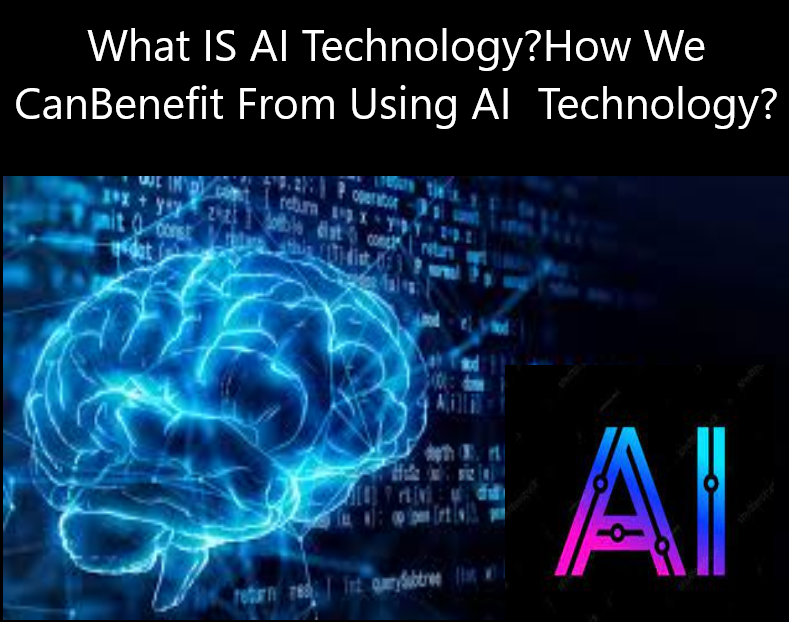AI Technology:
Artificial Intelligence (AI) technology has become an integral part of our lives, influencing various aspects of society, economy, and daily activities. In this article, we will delve into the essence of ai technology exploring its definition, evolution, and the myriad ways it benefits us.
Defining AI Technology
At its center, man-made intelligence alludes to the advancement of PC frameworks that can perform assignments requiring human insight. These tasks encompass problem-solving, learning, speech recognition, and decision-making. AI technology is designed to mimic cognitive functions, enabling machines to adapt and improve their performance over time.
Evolution of AI Technology
AI technology has witnessed significant evolution since its inception. The roots of AI can be traced back to ancient history, where myths and legends often featured artificial beings with human-like characteristics. However, the formal exploration of AI began in the mid-20th century.
Machine Learning Revolution
The advent of machine learning in the late 20th century marked a transformative phase for AI. Machine learning allowed systems to learn from data, adapt, and improve without explicit programming. This shift facilitated advancements in natural language processing, image recognition, and predictive analytics.
Deep Learning and Neural Networks
Deep learning, a subset of machine learning, gained prominence in the 21st century. Neural networks, inspired by the human brain’s structure, became a key component of deep learning models. This approach enabled breakthroughs in areas such as image and speech recognition, making AI systems more sophisticated and capable.
How AI Technology Works
AI systems employ various techniques to simulate human intelligence. Machine learning algorithms, which can be supervised or unsupervised, enable computers to learn patterns and make predictions. Deep learning models, especially neural networks, excel at handling complex data, allowing AI to understand and process information in a way that resembles human cognition.
Applications of AI Technology
AI technology permeates diverse fields, offering innovative solutions to complex challenges. Its applications span industries, transforming the way we work, communicate, and live.
1.Healthcare:
In medical care, man-made intelligence adds to diagnostics, customized medication, and medication revelation. Machine learning algorithms analyze medical data to identify patterns and predict disease risks. AI-powered robotic surgeries enhance precision, reducing the risk of errors in critical procedures.
2.Education: AI Technology
AI technology is reshaping education through personalized learning platforms, adaptive assessments, and intelligent tutoring systems. These tools cater to individual student needs, promoting a more effective and engaging learning experience.
3.Manufacturing:
In manufacturing, AI enhances efficiency through predictive maintenance, quality control, and supply chain optimization. Robotics equipped with AI capabilities automate repetitive tasks, freeing up human resources for more complex and creative endeavors.
4.Entertainment:
AI is also a driving force in the entertainment industry, contributing to content recommendation algorithms, virtual reality experiences, and even the creation of AI-generated art. Streaming platforms leverage AI to analyze user preferences and provide tailored content suggestions.
Benefits of AI Technology
The widespread adoption of AI technology brings forth numerous advantages that positively impact individuals, businesses, and society as a whole.
1.Enhanced Efficiency and Productivity:
AI automates repetitive and time-consuming tasks, allowing humans to focus on more complex and creative endeavors. In industries like manufacturing and finance, this leads to increased efficiency and higher productivity.
2.Improved Decision-Making:
AI systems can analyze vast amounts of data and extract meaningful insights. This capability aids decision-makers in making informed choices, whether in healthcare diagnosis, financial investments, or strategic planning.
3.Personalization and Customization:
The personalization capabilities of AI technology are evident in various aspects of our daily lives, from personalized recommendations on streaming platforms to customized learning paths in education. This tailoring of experiences enhances user satisfaction and engagement.
3.Advancements in Healthcare:
AI has the potential to revolutionize healthcare by improving diagnostics, accelerating drug discovery, and personalizing treatment plans. Predictive analytics models help identify disease trends, enabling proactive interventions and resource allocation.
4.Safety and Security: AI technology
AI technology plays a crucial role in identifying and mitigating threats. Machine learning algorithms can detect anomalies in network behavior, preventing cyber attacks, while facial recognition systems enhance security surveillance.
5.Environmental Impact:
AI is increasingly being harnessed to address environmental challenges. In agriculture, for instance, AI-powered systems optimize resource use, leading to more sustainable farming practices. Smart energy grids utilize AI to balance and optimize energy consumption, reducing environmental impact.
6.Job Displacement:
The automation of tasks by AI may lead to job displacement in certain industries. It is crucial to address these concerns through initiatives focused on retraining and upskilling the workforce for roles that complement AI capabilities.
7.Privacy Concerns:
The extensive use of AI in data analysis and decision-making raises privacy concerns. Striking a balance between utilizing AI for insights and protecting individual privacy is a complex challenge that requires robust regulations and ethical guidelines.
8.Accountability and Transparency:
AI decision-making processes can be opaque, making it challenging to understand how certain conclusions are reached. Ensuring accountability and transparency in AI systems is crucial for building trust and addressing concerns about the potential misuse of technology.
The Future of AI Technology
As AI technology continues to advance, exciting opportunities and challenges lie ahead for healthcare. AI aids in drug discovery, personalized medicine, and diagnostics.The integration of AI with emerging technologies like 5G, quantum computing, and the Internet of Things (IoT) will unlock new capabilities and applications.
Human-AI Collaboration:
The future of AI is likely to involve deeper collaboration between humans and machines. Augmented intelligence, where AI enhances human capabilities rather than replacing them, will become increasingly prevalent. This collaborative approach harnesses the strengths of both humans and AI, leading to more innovative solutions.
Ethical AI Development:
As AI technology evolves, there will be an increased emphasis on ethical AI development. Stricter regulations, guidelines, and ethical frameworks will be essential to ensure responsible AI deployment, addressing issues such as bias, transparency, and accountability.
AI in Scientific Discoveries:
AI’s data processing and pattern recognition capabilities make it a valuable tool in scientific research. From drug discovery to climate modeling, AI will contribute to accelerating scientific discoveries and addressing some of the most pressing global challenges.

